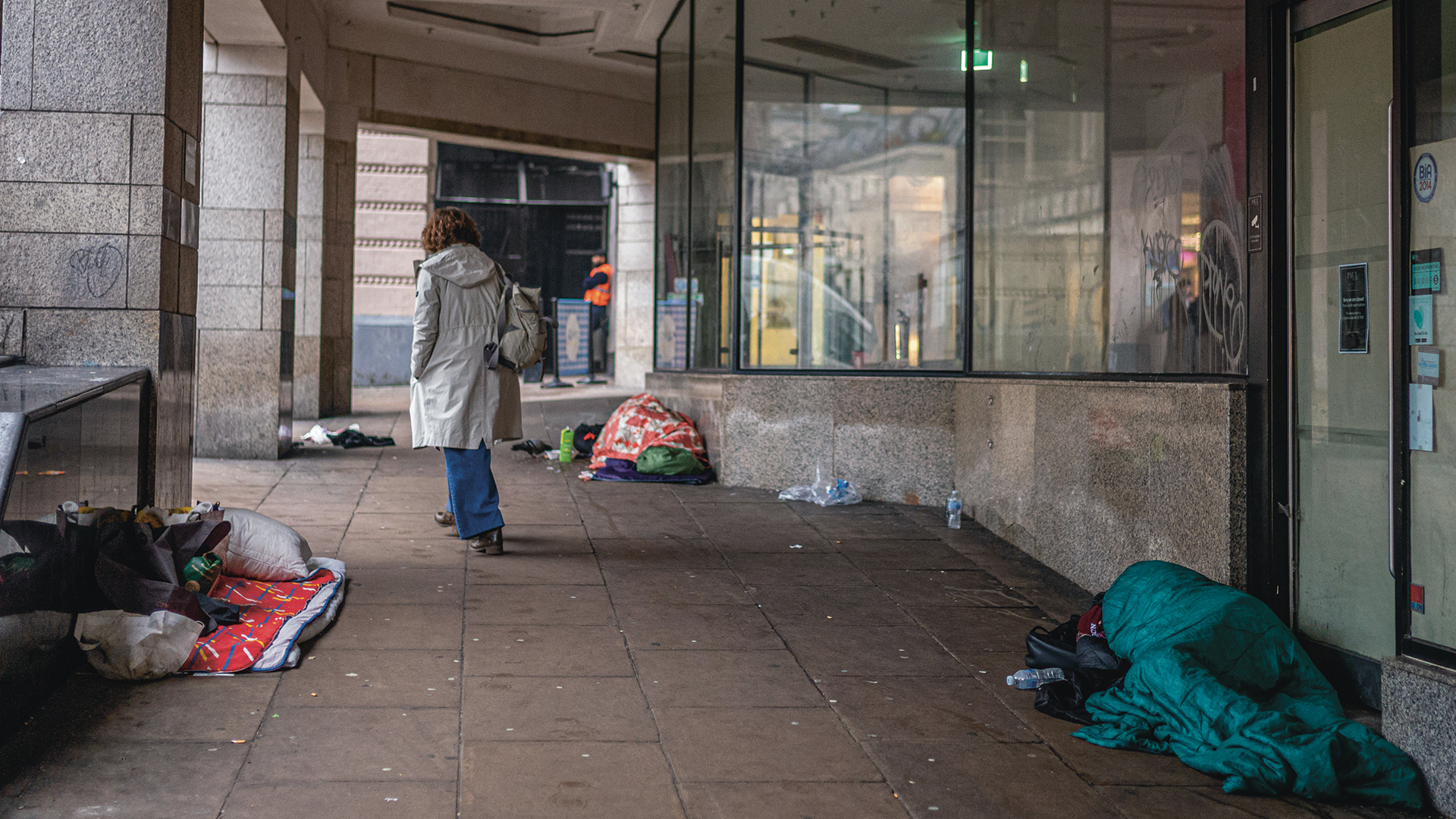The Tory government not only promised us an end to rough sleeping by 2024, they vowed to scrap the Vagrancy Act and to bring in protections for renters that would end no-fault evictions. So, at the end of their current term in government, what is their record on tackling homelessness?
There were 4,266 people estimated to be sleeping rough on any single night in England in autumn 2019, at the end of 2023 the figure stands at an estimate of 2,893 people. While not on course to fulfil their promise to end rough sleeping, this seems like progress. Sadly, it is not. Although rough sleeping figures did go down at the beginning of this government’s term, it has been quickly rising again. And rough sleeping is only part of the picture.
Temporary accommodation has spiralled out of control, leaving councils across the country in turmoil trying to keep up with cost, and leaving families in cramped, unsuitable and often unsafe accommodation.
Change a Big Issue vendor’s life this winter by purchasing a Winter Support Kit. You’ll receive four copies of the magazine and create a brighter future for our vendors
Between April and June of this year, 105,750 households were in temporary accommodation, that includes nearly 140,000 children. That’s the highest number since records began 25 years ago. And it only seems to be getting worse. The number of households in B&B accommodation with dependent children has increased by 93.1% since last year.
The Renters Reform Bill, a suite of policies from this government designed to tackle the out-of-control private rented sector, was also meant to put an end to no-fault evictions this year, this would have helped in some part to curb the rapidly rising rate of households pushed into homelessness. However, a last-minute U-turn put an end to this. This year alone 8,747 people in England and Wales were served with a Section 21, otherwise known as a no-fault eviction.









